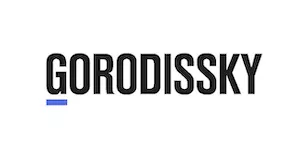For its 11th edition, on 1 and 2 December 2016, Premier Cercle" will gather 100+ IP high-level speakers and 400+ delegates from corporate, private, institutional and academic worlds at the Intellectual Property Summit. This event will take place in Brussels at the World Customs Organization. This two-days conference aims at discussing trademark, patent, trade secrets, copyright and design major recent evolutions, actions, issues and ongoing EU Reforms. SafeBrands is a partner of IP Summit and will welcome you on its booth during the event.
Sir Sergey Medvedev as Russian Trademark and Design Attorney and representative of the Gorodissky law-firm in the frame of the IP Summit 2016, has the pleasure to introduce the 'Trademarks vs. Domain names' workshop which will be discussed by his colleague, Mr Ilya Goryachev, as well as with Mr Matthieu Aubert, Legal manager of SafeBrands. We warmly thank him for this valuable contribution about the domain names dispute resolutions in Russia.
In Russia, domain name disputes are currently on the rise at trial. Unfair competitors, former distributors and speculating cyber-squatters are appropriating and using various attractive types of domain names resembling (copying) famous brands, trademarks and trade names which are usually protected as intellectual property (IP) rights in Russia. Unauthorized use of the protected IP rights, whether committed in the domain name or other mode of Internet-addressing, as well as unfair competition, are generally prohibited and therefore may be enforced in Russia in conformity with the national/international rules of law and recognized principles of local practice. Essentially, not only the Russian courts are empowered to handle regular unfair competition cases and/or IP infringement situations, but they may enjoin various threats (risks) of violation of exclusive rights of IP owners.
From the procedural point of view, domain conflicts involving such digital spaces as .RU, .SU and .РФ fall under the jurisdiction of the Russian courts, unless settled out-of-court under a letter of claim or cease-and-desist notice. Uniform Domain Name Dispute Resolution Policy (UDRP) is not applicable to the above-mentioned domain zones; as a result – such disputes may not be resolved under the UDRP procedures in the World Intellectual Property Organization (WIPO) Arbitration and Mediation Center or any other arbitration forum.
At the same time, Russian judicial system does support the basic UDRP principles and vote for application of the three-factor-violation test through the implementation of Article 10bis of the Paris Convention for the Protection of Industrial Property. In other words, in a clear-cut domain name infringement matter, for example, the trademark owner would have to prove that:
- the domain name is identical or confusingly similar to a trademark in which the claimant has rights;
- the respondent has no rights or legitimate interests in respect of the domain name; and
- the respondent's domain name has been registered and is being used in bad faith.
Importantly, in a classic domain name dispute, the trademark owner must prove the following three fundamental factors:
- the priority of the trademark over the domain name.
- the similarity between the trademark and the domain name; and
- the similarity of the trademarked (registered) goods with the goods offered for sale (sold) on the web-site under the domain name.
Hence, if one of these factors is not demonstrated under the first or the second scenario as described above, the unfair behavior/IP infringement will not be established by the court. And, in asserting the unfair competition and/or IP infringement claim, the plaintiff (IP owner) must always act in good faith to avoid unfair hijacking of the conflicting domain name.
In terms of the relief, there are quite a few of legal remedies available under the Russian law to repress the unfair behavior and/or IP infringement arising out of or in connection with the domain name issue. Preliminary as well as permanent injunctions would be the most appropriate remedies-at-law according to the local practice. Monetary compensation (i.e. statutory damages) is fairly trendy too, while the publication of court order will not be quite a demanded award by the way.
With regard to the pre-trial action, it is necessary to serve a letter of claim or cease-and-desist notice to the domain name owner requesting the latter: (a) to cease IP infringement and/or unfair competition in the out-of-court manner, and/or (b) to proceed with a voluntary transfer the conflicting domain name. In the absence of the domain name owner's reply within the statutory period (i.e. 30 days), or in the event of his/her negative response, the claimant has a valid cause of action and is free to file a lawsuit with the competent court. The domain name's offer to sell the domain name, if obtained in return to the letter of claims or cease-and-desist notice, may be regarded as a solid evidence of his/her bad faith during the trial.
Essentially, prior to moving forward with the cease-and-desist notices and litigation claims, it is possible to turn to the respective domain registrars by asking them to disclose the details on the domain name registrants. Usually, the local domain registrars are ready to provide such information under the attorneys' written promises to use the same for the purposes of IP enforcement. Therefore, domain name registrations made in the names of 'private persons' would not save the situation and/or defend the domain name owners against possible unfair competition and/or IP infringement claims.
*****
In general, bona fide IP owners, whether foreign or domestic, are well protected against pirate domain name registrations/use in Russia. National courts tend to explore any and all facts patterns related to domain name infringement matters and administer justice fully in line with the developed concepts of international law/practice. Hence, Russia may be a jurisdiction to consider...
Originally published by SafeBrands.
The content of this article is intended to provide a general guide to the subject matter. Specialist advice should be sought about your specific circumstances.

